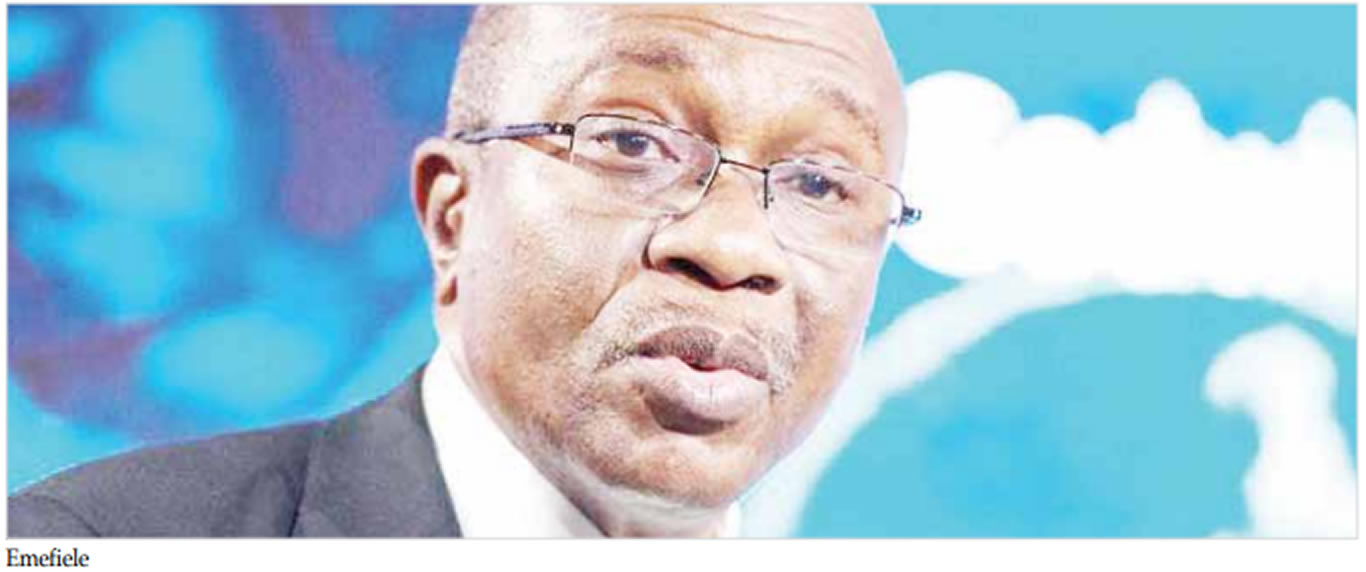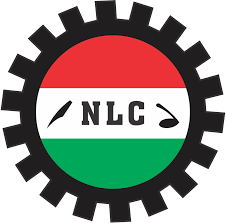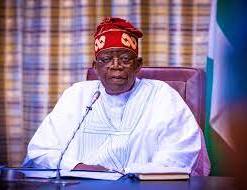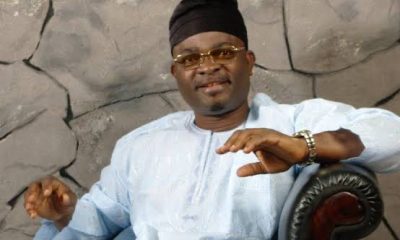Business News
Old Naira Notes: Emefiele Insists on January 31 Deadline

By Tony Obiechina, Ubong Ukpong & Eze Okechukwu, Abuja
The Central Bank of Nigeria (CBN) and members of the National Assembly may be heading for collision, as the apex bank yesterday insisted that there is no going back on the January 31 deadline for use of old naira notes, the same day the lawmakers called on the apex bank to extend the deadline by six months.
Speaking yesterday, after the Monday Monetary Policy Committee (MPC) meeting in Abuja, CBN Governor, Godwin Emefiele said that the January 31 deadline to stop the circulation of old naira notes would not be extended.
Emefiele stated that the 90-day ultimatum given to Nigerians to deposit their old currencies was enough.
“We called on the Deposit Money Banks (DMBs) to extend their working hours, and to work on weekends.
“There is no reason to talk about a shift. The new currencies are available,” he said.
Emefiele said the apex bank had mandated the DMBs to feed the new notes into their Automated Teller Machines (ATMs) for Nigerians to have equal access.
“We have increased disbursement of the new notes to them. There is adequate quantity of new notes available.
“Our mint is producing and we are supplying the banks. We have super agents in underserved areas like riverine communities, and CBN staff members have been out on mobilisation.
“We believe that by January 31, the new naira notes would have permeated the nooks and crannies of the country,” the CBN boss added.
Emefiele said the CBN had so far received about N1.5 trillion of the old naira notes.
He urged Nigerians to accelerate the process of taking their old notes to the banks before the deadline, adding that they should not fear harassment from security operatives.
“We have begged the EFCC and the ICPC to allow Nigerians deposit their old naira notes,” the CBN Governor said.
Yesterday, the Senate and the House of Representatives, urged the Central Bank of Nigeria, CBN to extend the mop-up of old Naira notes to the next six months.
Specifically, the Red Chamber asked the apex bank to extend the deadline for the expiration of the old Naira notes to 31st July, 2023.
The upper chamber also urged the CBN to open an exchange window where people that don’t have bank accounts to deposit their old notes to do so.
The senate’s resolutions were sequel to a motion by Sen. Sadiq Suleiman (APC-Kwara) during yesterday’s plenary.
Moving the motion, Suleiman recalled that the Senate in its resolution on Dec. 28, 2022, urged the CBN to extend the use of the old notes from Jan. 31 to June 30.
He said that however, the apex bank had insisted on terminating the use of the old naira notes by end of January
Suleiman lamented that there was not enough new naira notes in circulation and as such, moved that the date should be extended to July 31.
“Experiences around the world have shown that such abrupt decision if not controlled usually created chaos.
“The CBN should extend the use of the old notes to July 31,” he said.
Supporting the motion, Sen. Ibrahim Hadejia (APC-Jigawa) said that the call for extension was for their constituents and not for their (lawmakers) personal benefits.
“In my constituency, no Automated Teller Machine (ATM) is dispensing the new notes,” Hadejia said.
Similarly, Sen. Adamu Aliero (PDP-Kebbi) said that the policy would inflict untold hardship on people living in the rural areas.
“The CBN governor should be invited,” he said.
Sen. Adamu Bulkachuwa (PDP-Bauchi) said that the extension was necessary otherwise there would be chaos.
Sen. Biodun Olujimi (PDP-Ekiti) who decried that in her local government area, about 90 per cent of the people have not seen a glimpse of the new naira notes, called on the apex bank to “look away from the elections”.
She said that if the date was not extended, it would lead to collateral damage which would not augur well for the economy.
Sen. Mohammed Ndume (APC-Borno) called on the Senate to use its oversight responsibility on the CBN to “order the CBN governor to extend the date.”
He said that the power of the senate should not be played down calling on the senators to stand firm on the call for extension.
For Sen. Sam Egwu (PDP-Ebonyi) who was the only senator who opposed the motion, “Nigerians do not have the culture of keeping their money in the bank.
“It is in Nigeria where cash is used arbitrarily; other countries use electronic means.
“Nigerians are just averse to change,” Egwu said.
In his remarks, Senate President, Ahmad Lawan, said that most of the senatorial districts did not have banks.
“In rural Nigeria, there are no banks and people transact businesses with cash more often.
“There is no doubt that we must have window for exchange. We must have policies by the CBN to have bank branches established in rural areas.
“We need this extension for the most ordinary Nigerians,” Lawan said.
Also yesterday, the House of Representatives, summoned commercial bank operators and the Governor of Central Bank of Nigeria (CBN), Godwin Emefiele, over the scarcity of the new naira notes.
This is sequel to the adoption of a motion of urgent public importance brought before it by Rep. Sanda Soli (APC-Katsina) at the plenary in.
In his motion, Soli said that all over the world, currencies were being ‘phased out’ and not ‘forced out’.
“I am of the view that our currencies are being forced out and there is the need for some reviews and sensitisation by CBN and non-bank promoters,” he said.
The lawmaker called for review of the cashless policy, adding that CBN should ensure price stability.
Although Soli said that the cashless policy was in tandem with global best practices, he, however, added that most banks in Nigeria did not have what it takes to ensure that such was achieved.
He decried what he called the CBN’s refusal to listen to the cry of Nigerians for the extension of the Jan. 31 deadline for the deposit of the old naira notes, stating that this might have negative effect on the economy.
Speaker of the House of Representatives, Rep Femi Gbajabiamila, said that as good as the policy was, the modus operandi and the timing were the problem.
Gbajabiamila said that the currency should be phased out gradually, such that Nigerians would use the old and new naira together.
“There is nothing wrong in reviewing a policy; banks are claiming they don’t have the new naira notes, while CBN is also claiming the banks have them,” he said.
The speaker said that banks’ managing directors should be invited to brief the leadership or the ad-hoc committee to find out whether the money was available or they are being hoarded by banks.
The House, however, called for a six-month extension of the deadline to make the new notes available and that President Muhammadu Buhari should intervene on the debacle in the interest of Nigerians.
The House also set up an ad-hoc committee, led by Rep. Alhassan Ado-Doguwa, to meet with bank operators.
Business News
Tinubu Congratulates Dangote on World Bank Appointment

By Jennifer Enuma, Abuja
President Bola Tinubu has congratulated Alhaji Aliko Dangote, the President of Dangote Group, on his appointment to the World Bank’s Private Sector Investment Lab, a body tasked with promoting investment and job creation in emerging economies.
In a statement by Special Adviser on Media and Publicity, Bayo Onanauga, the President described the appointment as apt, given Dangote’s rich private sector experience, strategic investments, and many employment opportunities created through his Dangote Group.
The Dangote Group became one of Africa’s leading conglomerates through innovation and continuous investment.
Dangote Group’s business interests span cement, fertiliser, salt, sugar, oil, and gas. However, the $20 billion Dangote Petroleum Refinery and Petrochemicals remains Africa’s most daring project and most significant single private investment.
“President Tinubu urges Dangote to bring to bear on the World Bank appointment his transformative ideas and initiatives to impact the emerging markets across the world fully” the statement said.

The World Bank announced Dangote’s appointment on Wednesday, as part of a broader expansion of its Private Sector Investment Lab. The lab now enters a new phase aimed at scaling up solutions to attract private capital and create jobs in the developing world.
The CEO of Bayer AG, Bill Anderson, the Chair of Bharti Enterprises, Sunil Bharti Mittal, and the President and CEO of Hyatt Hotels Corporation, Mark Hoplamazian, are on the Private Sector Investment Lab with Dangote.
The World Bank said the expanded membership brings together business leaders with proven track records in generating employment in developing economies, supporting the Bank’s focus on job creation as a central pillar of global development.
Business Analysis
Nigeria Customs Generates over N1.75trn Revenue in 2025
By Joel Oladele, Abuja
The Nigeria Customs Service (NSC) has generated an impressive N1,751,502,252,298.05 in revenue during the first quarter of 2025.
The Comptroller-General (CG) of the Service, Bashir Adeniyi, disclosed this yesterday, during a press briefing in Abuja.
According to Adeniyi, the achievement not only surpasses the quarterly target but also marks a substantial increase compared to the same period last year, reflecting the effectiveness of recent reforms and the dedication of customs officers across the nation.
“This first quarter of 2025 has seen our officers working tirelessly at borders and ports across the nation.
I’m proud to report we’ve made real progress on multiple fronts—from increasing revenue collections to intercepting dangerous shipments,” Adeniyi stated.He attributed this success to the reforms initiated under President Bola Tinubu’s administration and the guidance of the Honourable Minister of Finance and Coordinating Minister of the Economy, Olawale Edun.
The CG noted that the revenue collection for Q1 2025 exceeded the quarterly benchmark of N1,645,000,000,000.00 by N106.5 billion, achieving 106.47% of the target. This performance represents a remarkable 29.96% increase compared to the N1,347,705,251,658.31 collected in Q1 2024.
Adeniyi highlighted the month-by-month growth, noting that January’s collection of N647,880,245,243.67 surpassed its target by 18.12%, while February and March also showed positive trends.
“I’m pleased to report the Service’s revenue collection for Q1 2025 totaled N1,751,502,252,298.05.
“Against our annual target of N6,580,000,000,000.00, the first quarter’s proportional benchmark stood at N1,645,000,000,000.00. I’m proud to announce we’ve exceeded this target by N106.5 billion, achieving 106.47% of our quarterly projection. This outstanding performance represents a substantial 29.96% increase compared to the same period in 2024, where we collected N1,347,705,251,658.31.
“Our month-by-month analysis reveals even more encouraging details of this growth trajectory,” Adeniyi said.
In addition to revenue collection, Adeniyi said the NCS maintained robust anti-smuggling operations, recording 298 seizures with a total Duty Paid Value (DPV) of ₦7,698,557,347.67.
He stated that rice was the most seized commodity, with 135,474 bags intercepted, followed by petroleum products and narcotics.
“From rice to wildlife, these seizures show our targeted approach,” Adeniyi remarked, noting the NCS’s commitment to combating smuggling and protecting national revenue.
Adeniyi also highlighted key initiatives, including the expansion of the B’Odogwu customs clearance platform and the launch of the Authorized Economic Operators Programme, which aims to streamline processes for compliant businesses. The NCS’s Corporate Social Responsibility Programme, “Customs Cares,” was also launched, focusing on education, health, and environmental sustainability.
Despite these achievements, the CG noted that the NCS faced challenges, including exchange rate volatility and non-compliance issues. Adeniyi acknowledged the need for ongoing adaptation and collaboration with stakeholders to address these challenges effectively.
Looking ahead, the NCS aims to continue its modernization efforts and enhance service delivery, ensuring that it remains a critical institution in Nigeria’s economic and security landscape.
“Results speak louder than plans; faster clearances through B’Odogwu, trusted traders in the AEO program, and measurable food price relief from our exemptions. We’ll keep scaling what works,” he concluded.
BUSINESS
NSIA Net Assets Hit N4.35trn in 2024
By Tony Obiechina Abuja
The Nigeria Sovereign Investment Authority (NSIA) yesterday disclosed that its net assets grew from N156bn in 2013 to N4.35 trillion in 2024.
Similarly, the Authority has remained profitable for 12 consecutive years, leading to cumulative retained earnings of N3.
74 trillion in 2024.Managing Director and Chief Executive Officer of NSIA, Aminu Umar- Sadiq made these disclosures at a media engagement in Abuja, highlighting its audited financial results for the 2024 fiscal year.
According to him, the results underscored the resilience of the authority’s investment strategy and the strength of its earnings, driven by a well-diversified revenue base and robust risk management practices, despite a challenging global macroeconomic and geopolitical environment.
Total operating profits, excluding share of profits from associates and Joint Venture (JV) entities, increased from N1.17 trillion in 2023 to N1.86 trillion in 2024, driven by the strong performance of
NSIA’s diversified investment portfolio, infrastructure assets, gains from foreign exchange movements, and derivative valuations.
In addition, Total Comprehensive Income (TCI), inclusive of share of profits from associates and JV entities, reached N1.89 trillion in 2024, reflecting a 59 per cent increase from N1.18 trillion in 2023.
Core TCI (excluding foreign exchange and derivative valuation gains) rose by 148 per cent to N407.9 billion in 2024 compared to N164.7 billion in 2023, supported by robust returns on financial assets measured at fair value through profit and loss, including collateralised securities, private equity, hedge funds, and Exchange-Traded Funds (ETFs).
Umar-Sadiq said the authority’s outstanding financial performance in 2024 reflected the “strength of our strategic vision, disciplined execution and unwavering commitment to sustainable socio-economic advancement.”
He said, “By leveraging innovation, strategic partnerships and sound risk management, we have not only delivered strong returns but also created value for our stakeholders
“As we move forward, we remain focused on driving economic transformation, expanding opportunities, scaling transformative impact and ensuring long-term prosperity for current and future generations of Nigerians.”
The CEO reaffirmed the authority’s commitment to managing the country’s SWF, and delivering the mandates enshrined in the NSIA Act.
He said NSIA remained poised to continually create long-term value for its stakeholders by delivering excellent risk-adjusted financial results, developing a healthy and well-diversified portfolio of assets and large-scale infrastructure projects, and enhancing the desired social outcomes.
He noted that NSIA was committed to its mandate of prudent management and investment of Nigeria’s sovereign wealth.
“In adherence to its Establishment Act, NSIA prioritises transparency, disclosure, and effective communication with all stakeholders and counterparties,” he said.
He pointed out that in the year under review, a new board, led by Olusegun Ogunsanya as Chairman, was appointed by President Bola Tinubu, in accordance with the provisions of the NSIA Act.
The new board will provide strategic direction and oversight, in addition to playing a pivotal role in critical decision making.
He remarked that under the guidance of the Board, the Authority will retain focus on its primary mandate of creating shared value for all stakeholders based on its continued adoption of corporate governance practices.
“NSIA prides itself an investment institution of the federation established to manage funds in excess of budgeted oil revenues and its mission is to play a pivotal role in driving sustained economic development for the benefit of all Nigerians through building a savings base for the Nigerian people, enhancing the development of the county’s infrastructure, and providing stabilisation support in times of economic misadventure,” he added.



























